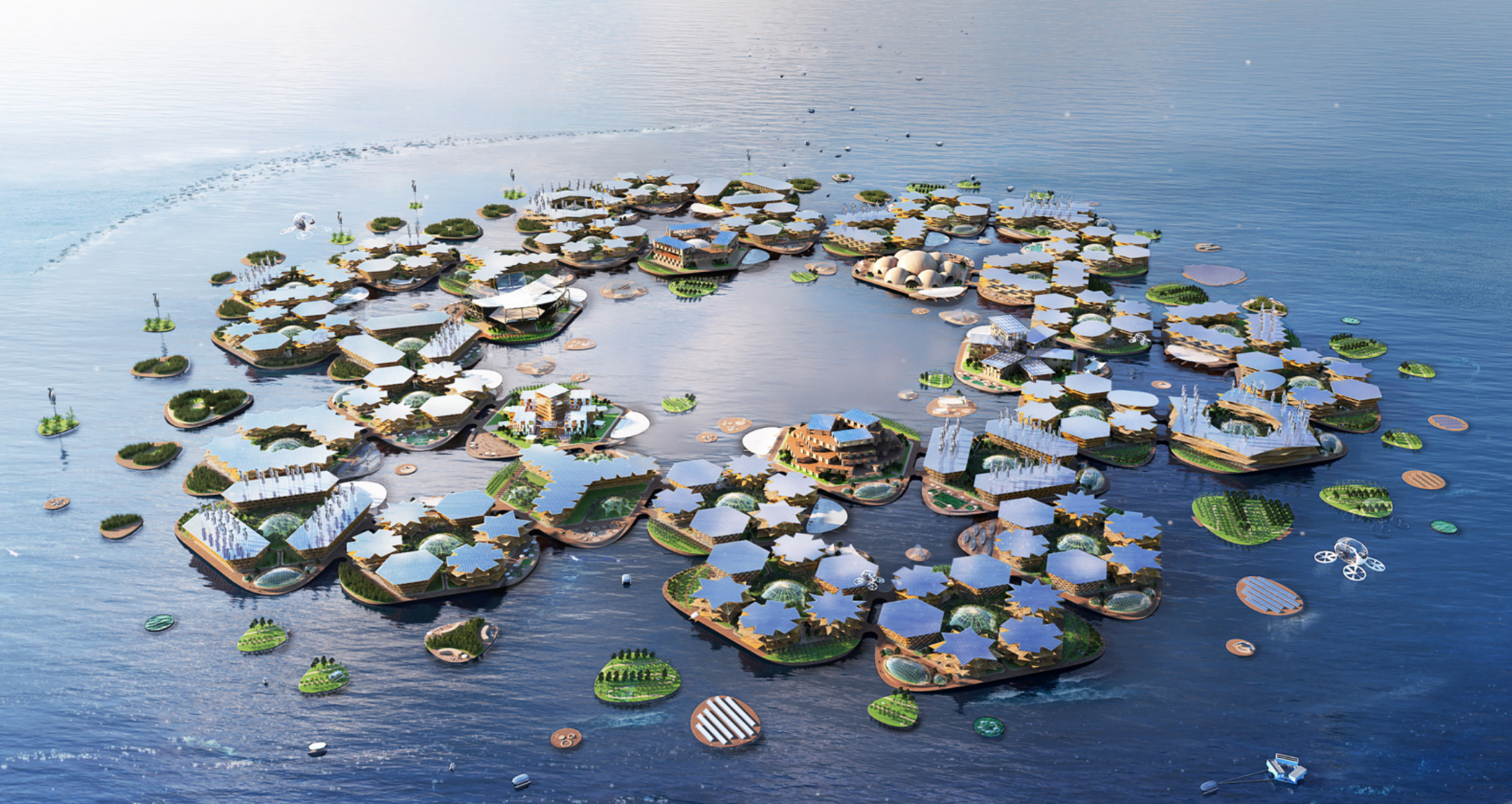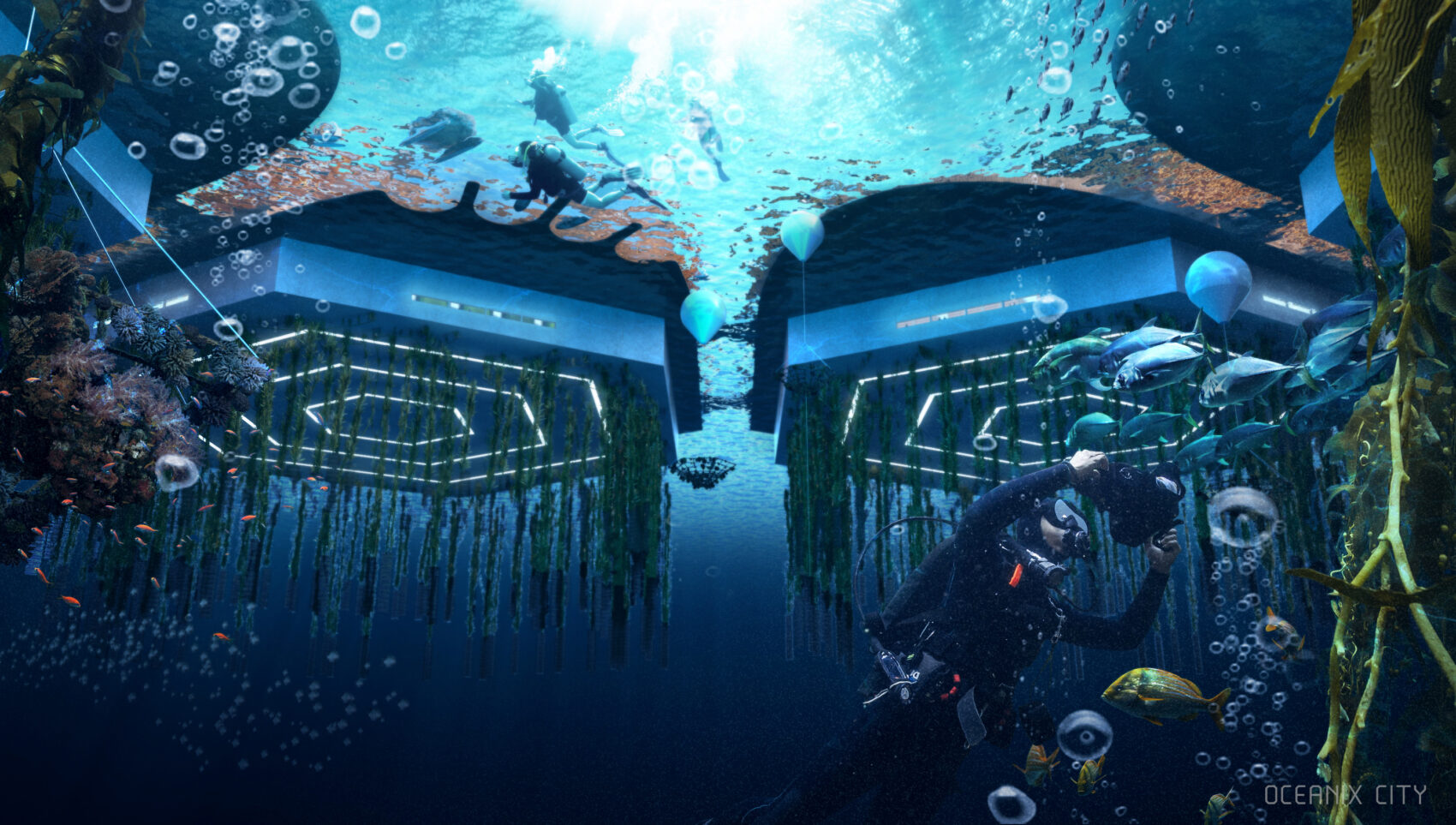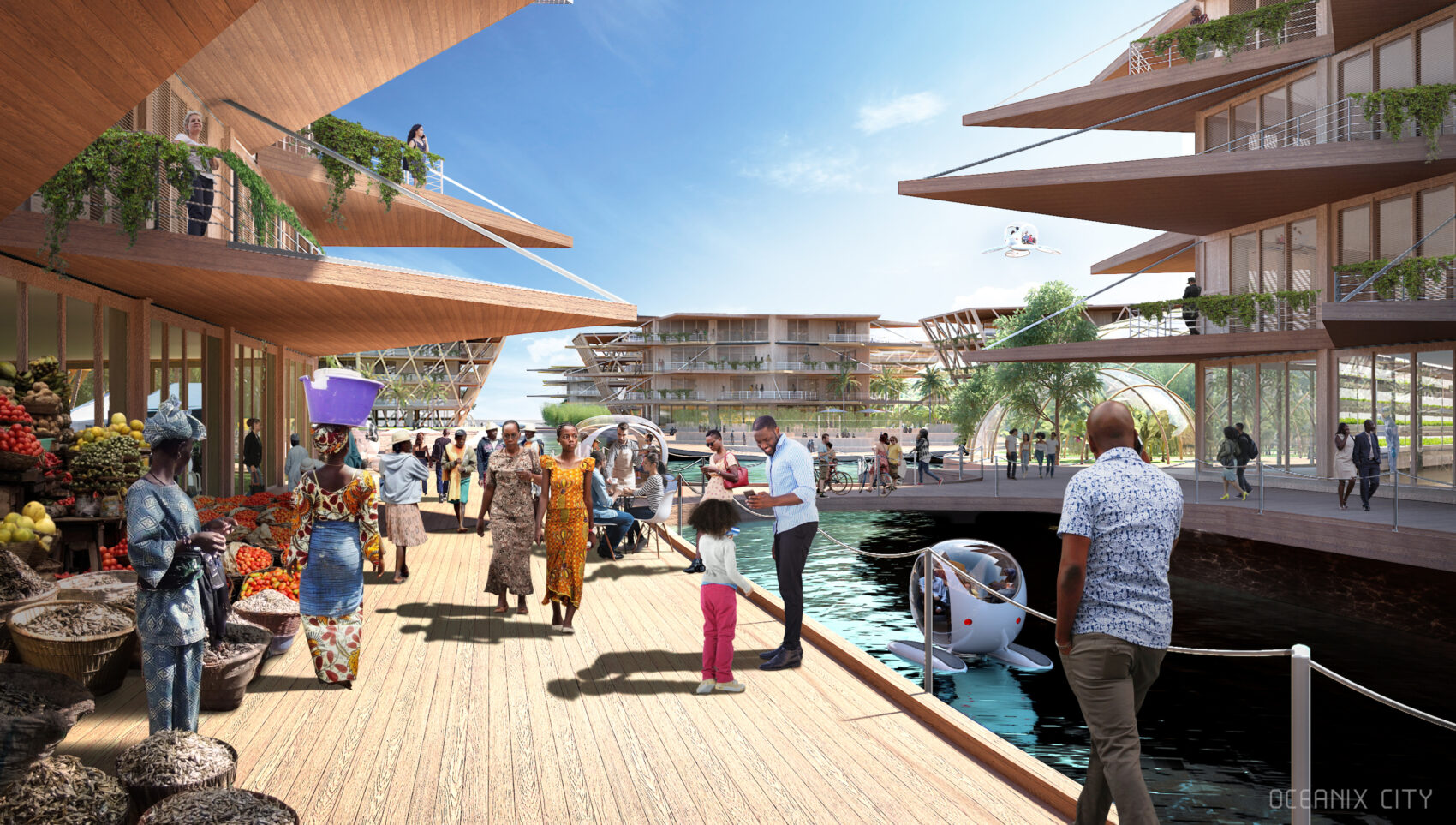With sea levels rising, Oceanix and UN-Habitat are planning to build the world’s first sustainable floating city prototype off the coast of Busan in South Korea. Jenny Southan reports
In November it was announced that blue tech company Oceanix, UN-Habitat and Busan Metropolitan City of the Republic of Korea signed a historic agreement to build the world’s first prototype sustainable floating city.
Following the recent COP26 climate conference in Glasgow, the entities seek to “innovate breakthrough solutions for coastal cities threatened by sea level rise”. What they have in mind sounds both utopian and sci-fi…
As we reported in a previous story, buildings in Oceanix’s floating cities will be no more than seven stories high, to ensure a low centre of gravity and stand up to high winds and storms. Fast-growing bamboo will be used for construction and public outdoor spaces will be shaded (glare from the sun would be a legitimate threat), while solar panels will soak up rays to power the city.
Communal farming, sharing culture, zero waste and fresh water autonomy (rainwater will be harvested and sea water desalinated) will also be defining features. Islands on the outer perimeters will remain uninhabited to allow for agriculture, and to act as a buffer against high waves.
Why Busan?
A city of 3.4 million residents, located on the south-eastern tip of the Korean peninsula, Busan City is one of the most important maritime centres of the 21st century. It is also bidding for World Expo 2030.

Busan’s deep harbour and gentle tides have helped the city become the largest container handling port in the country – and the fifth in the world – so it seems like a good choice of destinations for the prototype, which is expected to be built by 2025.
Mayor of Busan City, Park Heong-joon, says: “With the complex changes facing coastal cities, we need a new vision where it is possible for people, nature and technology to co-exist. There is no better place than Busan to take the first step towards sustainable human settlements on the ocean, proudly built by Korea for the world.”
What’s the plan?
A key goal of the floating city prototype is to cultivate a new generation of blue tech innovators, entrepreneurs, and researchers in Busan by creating a vibrant ecosystem through collaboration between international and local partners.
In a statement, Oceanix says: “Coastal cities are on the frontlines of climate-related risks. Flooding is destroying billions of dollars worth of infrastructure and forcing millions of climate refugees to leave their homes.
“Coastal cities are facing unique demographic, environmental, economic, social and spatial challenges. With nowhere to expand, rapid urban population growth is pushing people closer to the water, driving housing costs to prohibitive levels, and squeezing the poorest families out.
“The challenge is huge: two out of every five people in the world live within 100km of the coast, and 90 per cent of mega cities worldwide are vulnerable to rising sea levels. The floating city is envisaged as a flood-proof infrastructure that rises with the sea and produces its own food, energy and fresh water with fully integrated zero waste closed-loop systems.” Executive director of UN-Habitat, Maimunah Mohd Sharif, says: “Sustainable floating cities are a part of the arsenal of climate adaptation strategies available to us. Instead of fighting with water, let us learn to live in harmony with it. We look forward to developing nature-based solutions through the floating city concept, and Busan is the ideal choice to deploy the prototype.”
Executive director of UN-Habitat, Maimunah Mohd Sharif, says: “Sustainable floating cities are a part of the arsenal of climate adaptation strategies available to us. Instead of fighting with water, let us learn to live in harmony with it. We look forward to developing nature-based solutions through the floating city concept, and Busan is the ideal choice to deploy the prototype.”
Co-founders of Oceanix, Itai Madamombe and Marc Collins Chen, say: “Sea level rise is a formidable threat, but sustainable floating infrastructure can help solve this looming catastrophe. We are excited to make history with Busan and UN-Habitat in ushering in humanity’s next frontier.”
They add that the prototype would be approached at a “hyper-local” level, taking into account the rich social, economic, political and cultural uniqueness of Korea as the host country. Oceanix was founded in 2018 to design and build floating cities for people to live sustainably on the ocean. The design of the world’s first floating city for 10,000 residents was unveiled in April 2019 at a UN Roundtable co-convened by UN-Habitat, OCEANIX, the MIT Center for Ocean Engineering, and the Explorers Club.
Oceanix was founded in 2018 to design and build floating cities for people to live sustainably on the ocean. The design of the world’s first floating city for 10,000 residents was unveiled in April 2019 at a UN Roundtable co-convened by UN-Habitat, OCEANIX, the MIT Center for Ocean Engineering, and the Explorers Club.
UN-Habitat, the United Nations Programme for Human Settlements, works towards a better urban future. Its vision is to achieve “a better quality of life for all in an urbanising world” and works in over 90 countries to promote transformative change in cities and human settlements through knowledge, policy advice, technical assistance and collaborative action.
